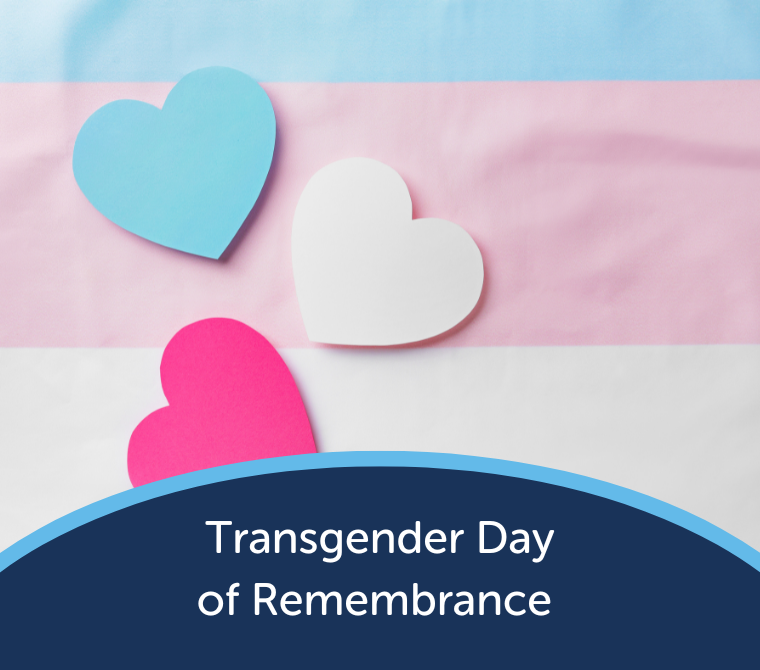Free Helpline: 0808 802 6161 Monday to Friday 9am - 8pm, weekends 10am - 2pm.
Monday to Friday 9am - 8pm, weekends 10am - 2pm.
We use necessary cookies to make our site work. We also set analytics cookies that help us make improvements by measuring how you use the site.
For more detailed information about the cookies we use, see our Terms and Conditions page.
We're here if you're struggling with grief and need to talk. This article also shares information and tips on how to be an ally, as well as some of the challenges we have faced when working with clients who identify as trans.
November 20, 2023
Transgender Day of Remembrance (TDoR) takes place each year on 20 November to honour and observe the memory of those who have lost their lives due to transphobic violence. This also includes those who have completed suicide due to oppressive barriers that they faced due to their transgender identity. The day often can bring a multitude of emotions for bereaved loved ones.
We share this article on Transgender day of Remembrance to highlight some of the challenges we face when working with clients who identify as trans, to provide guidance on how you can support and be an ally, as well as a reminder that Cruse Scotland is here for all bereaved people across Scotland regardless of how recent or long ago the death took place, or the relationship to the person who has died.
As a service, we have encountered some difficult, and delicate, situations when working with trans clients, particularly within our Children and Young People’s service. These have included:
This is only a flavour of the experiences that we are able to share - we know that there will be many more, perhaps even hidden, narratives that have significant impact on a client’s experience of bereavement, loss and grief.
As an organisation, we are always looking to ensure that we offer safe, confidential, non-judgemental space to all our clients. Through the development of our Equality, Diversity and Inclusion strategy, and by offering our staff and volunteers access to relevant training and learning we seek to be better equipped in supporting our clients’ grief journeys particularly where that grief has been negatively impacted by complexities experienced by the transgender community.
For those fortunate to not have lost a loved one due to transphobia, Transgender Day of Remembrance can be a gentle reminder of what it means to be an active ally and practice solidarity.
Below are a few out of many suggestions of ways to be an ally, followed by some fantastic resources for further reading
Resources for additional learning
https://glaad.org/transgender/allies/
https://www.stonewall.org.uk/the-truth-about-trans
https://transequality.org/issues/resources/understanding-transgender-people-the-basics
https://www.youtube.com/watch?v=pDYiesH5JYg (Video)
“Disclosure” – a Netflix Documentary
If you’re struggling with your grief, Cruse Scotland is here for you.
Call our freephone Bereavement Helpline 0808 802 6161 (Monday to Friday 9am - 8pm, weekends 10am - 2pm), speak with Grief Chat here on our website, or learn the other ways we could support.
Further support:
LGBT Health and Wellbeing
Call: 0131 564 3970
Email: admin@lgbthealth.org.uk
LGBT Youth Scotland
Call: 0131 555 3940
Email: info@lgbtyouth.org.uk
This article was prepared by Kyle McFadden-Young (Helpline Development Manager) and Nicola Reed (Director of Client Services).
